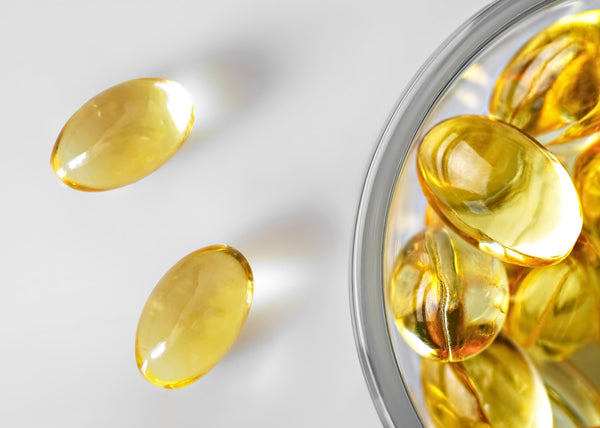PCOD, or Polycystic Ovary Disease, is a hormonal disorder that affects many women worldwide. It can lead to a variety of symptoms such as irregular periods, weight gain, and acne. While it can be challenging to manage, certain lifestyle habits may help in reducing its impact and treating PCOD. In this article, we will explore various lifestyle habits that can help manage PCOD.
Understanding PCOD and Its Impact on Health
PCOD is a condition characterized by hormonal imbalances, specifically an overproduction of androgens (male hormones) in women. The ovaries produce immature or partially mature eggs, which leads to the release of excess male hormones. This hormonal imbalance can disrupt the release of eggs from the ovaries and cause the development of small cysts on the ovaries. These cysts can lead to a range of symptoms and health issues.
In addition to affecting reproductive health, PCOD can also increase the risk of developing other health conditions such as type 2 diabetes, high blood pressure, and heart disease. Therefore, it is crucial to learn how to manage PCOD effectively to minimize its impact on overall health.
Lifestyle Changes to Manage PCOD
PCOD is similar to PCOS but can often be managed with simple lifestyle and diet changes. By adopting healthy habits, women with PCOD can regulate hormonal balance, improve insulin sensitivity, reduce inflammation, and enhance overall well-being.
The Importance of a Holistic Approach to PCOD Management
Managing PCOD requires a holistic approach that addresses both physical and emotional aspects, incorporating nutrition, exercise, stress management, and sleep to promote overall well-being. By creating a balanced lifestyle, women with PCOD can support their hormonal health and overall wellness. It's essential to recognize individual differences, consult healthcare professionals, and adjust lifestyle habits based on specific needs and preferences. Let us have a look at the simple tips to manage PCOD.
Reduce Sugar Intake
Reducing sugar intake can significantly help manage PCOD symptoms and improve overall health. PCOD is linked to insulin resistance, where the body struggles to use insulin effectively, and high sugar consumption worsens this condition, leading to symptoms like:
- Hormonal imbalances
- Weight gain
- Inflammation
- Rapid blood sugar spikes and crashes
- Affects energy levels and mood stability
These symptoms make it harder to manage symptoms like fatigue and mood swings.
Tips for Reducing Sugar in Your Diet
If you have PCOD, reducing sugar intake can be a beneficial step towards managing your symptoms. Here are some tips to help you reduce sugar in your diet:
- Avoid or minimize the consumption of sugary drinks such as soda, fruit juices, and energy drinks.
- Read food labels carefully to identify hidden sugars in processed foods. Look out for ingredients such as high fructose corn syrup, sucrose, and glucose.
- Choose whole foods instead of processed foods whenever possible. Whole foods are generally lower in added sugars and higher in essential nutrients.
- Swap sugary snacks with healthier alternatives such as fruits, nuts, or yogurt.
- Limit the intake of sugary desserts and opt for homemade treats using natural sweeteners like honey or dates.
Adequate Hydration
Practical Ways to Stay Hydrated
To ensure adequate hydration and support PCOD management, consider the following tips:
- Drink water regularly throughout the day, aiming for at least 8 to 10 glasses.
- Carry a reusable water bottle with you to encourage frequent sips.
- Infuse your water with natural flavors by adding slices of fruits, vegetables, or herbs such as lemon, cucumber, or mint.
- Limit the consumption of dehydrating beverages such as caffeinated drinks and alcohol.
- Incorporate hydrating foods into your diet, such as watermelon, cucumber, and soups.
Herbs for PCOD Management
Herbs can complement standard PCOD treatments by promoting hormonal balance, reducing inflammation, and supporting overall well-being. While they cannot replace medical treatments, herbs like cinnamon, licorice, saw palmetto, and spearmint have shown potential benefits for managing PCOD symptoms through their anti-inflammatory, anti-androgenic, and antioxidant properties. It's essential to consult a healthcare professional or qualified herbalist before adding herbs to your PCOD management plan.
Recommended Herbs for PCOD Management
While individual herb recommendations may vary depending on personal circumstances, here are some herbs that have shown promise in PCOD management:
- Cinnamon: Known for its anti-inflammatory properties, cinnamon may help improve insulin sensitivity and regulate menstrual cycles.
- Licorice: This herb has anti-inflammatory and anti-androgenic effects, which may benefit women with PCOD.
- Saw Palmetto: Traditionally used for hormonal imbalances, saw palmetto may help regulate testosterone levels in women with PCOD.
- Spearmint: Studies suggest that spearmint tea may help reduce excess androgen levels and improve hormone balance.
The Impact of a Balanced Diet
A balanced diet is crucial for managing PCOD symptoms and supporting overall health and well-being. By providing the body with essential nutrients, a balanced diet can help regulate hormones, improve insulin sensitivity, and maintain a healthy weight.
Nutritional Needs for PCOD Management
When planning a balanced diet for PCOD management, focus on incorporating nutrient-dense foods that support hormonal balance and reduce inflammation. Key nutrients for PCOD management include:
- Lean proteins such as fish, poultry, beans, and tofu.
- Fiber-rich foods like fruits, vegetables, whole grains, and legumes.
- Healthy fats from sources such as olive oil, avocados, nuts, and seeds.
- Antioxidant-rich foods such as berries, leafy greens, and colorful vegetables.
- Probiotic-rich foods like yogurt, kefir, and fermented vegetables to support gut health.
Creating a Balanced Diet Plan
Consulting with a registered dietitian or nutritionist can be beneficial in creating a personalized balanced diet plan that meets your specific needs and goals. A professional can help you identify specific dietary adjustments, portion sizes, and meal-planning strategies that support PCOD management.
Exercise for PCOD Management
Regular physical activity is an important component of PCOD management. Exercise can help regulate hormones, improve insulin sensitivity, promote weight loss, reduce stress, and enhance overall well-being.
Choosing the Right Exercises
When it comes to exercises for PCOD, some of the best exercises for PCOD aim for a combination of cardiovascular, strength training, and stress-reducing activities such as yoga or Pilates. Incorporating a variety of exercises can help improve insulin sensitivity, boost energy levels, and support a healthy weight.
Cardiovascular exercises like walking, jogging, swimming, or cycling increase heart rate and promote cardiovascular health. Strength training exercises such as weightlifting or resistance training can help build lean muscle mass, improve metabolism, and support weight management.
Starting Slow and Gradually Increasing Intensity
If you're new to exercise or have not been active for a while, it's important to start slowly and gradually increase intensity and duration. Listen to your body, and if you experience any discomfort or pain, consult with a healthcare professional or a certified fitness expert.
Remember that consistency is key when it comes to exercise. Aim for at least 150 minutes of moderate-intensity exercise or 75 minutes of vigorous-intensity exercise per week. Break down your exercise sessions into smaller durations if needed and find activities that you enjoy to stay motivated.
Stress-Reducing Meditation for PCOD Management
Stress management is an essential aspect of PCOD management, as chronic stress can worsen hormonal imbalances and exacerbate PCOD symptoms. Incorporating stress-reducing practices such as meditation or mindfulness can help in managing stress levels and promoting emotional well-being.
Practicing Meditation
Meditation involves focusing your attention and eliminating the stream of thoughts that may be causing stress or anxiety. Meditation can be done in various forms, such as guided meditation, breathing exercises, or visualization techniques.
Regular meditation practice can help reduce stress, calm the mind, improve sleep quality, and promote a sense of relaxation. It can also support hormonal balance by reducing cortisol, the stress hormone, and enhancing overall well-being.
Finding a Meditation Practice that Works for You
There are numerous meditation techniques available, so it's essential to explore different approaches and find a practice that resonates with you. You can try attending meditation classes, using meditation apps, or seeking guidance from experienced practitioners.
Remember that consistency is key when it comes to meditation. Start with shorter sessions and gradually increase the duration as you become more comfortable. Incorporating meditation into your daily routine, even for a few minutes, can make a positive difference in managing PCOD and overall well-being.
The Importance of Quality Sleep
Sleep plays a vital role in overall health and well-being, and it can significantly influence hormonal balance and PCOD management. Good-quality sleep is essential for hormone regulation, metabolism, immune function, and mental well-being.
Establishing a Sleep Routine
To promote quality sleep, establish a consistent sleep routine by following these tips:
- Set a regular sleep schedule and stick to it, even on weekends.
- Create a relaxing bedtime routine by engaging in calming activities such as reading, taking a warm bath, or practicing gentle stretches.
- Create a sleep-friendly environment by ensuring your bedroom is dark, quiet, and at a comfortable temperature.
- Avoid stimulating activities or electronic screens close to bedtime as they can interfere with sleep.
- Limit caffeine intake in the afternoon and evening, as it can disrupt sleep.
Recognizing the Importance of Quality Sleep
Poor-quality sleep or inadequate sleep duration can contribute to hormonal imbalances, increased insulin resistance, weight gain, and mood disturbances. Therefore, prioritizing good-quality sleep is vital for managing PCOD symptoms and promoting overall well-being.
Conclusion
Managing PCOD can be challenging, but adopting a healthy lifestyle can make a significant difference. Understanding the diet for PCOD is crucial and eating balanced meals is key. Incorporating the best exercises for PCOD, regular meditation, and ensuring quality sleep can also help. Each person’s journey with PCOD is unique, so it's essential to learn how to manage PCOD by listening to your body and consulting healthcare professionals. With the right approach how to treat PCOD, women can effectively manage symptoms and enhance their quality of life.



























 DOWNLOAD NOW
DOWNLOAD NOW
